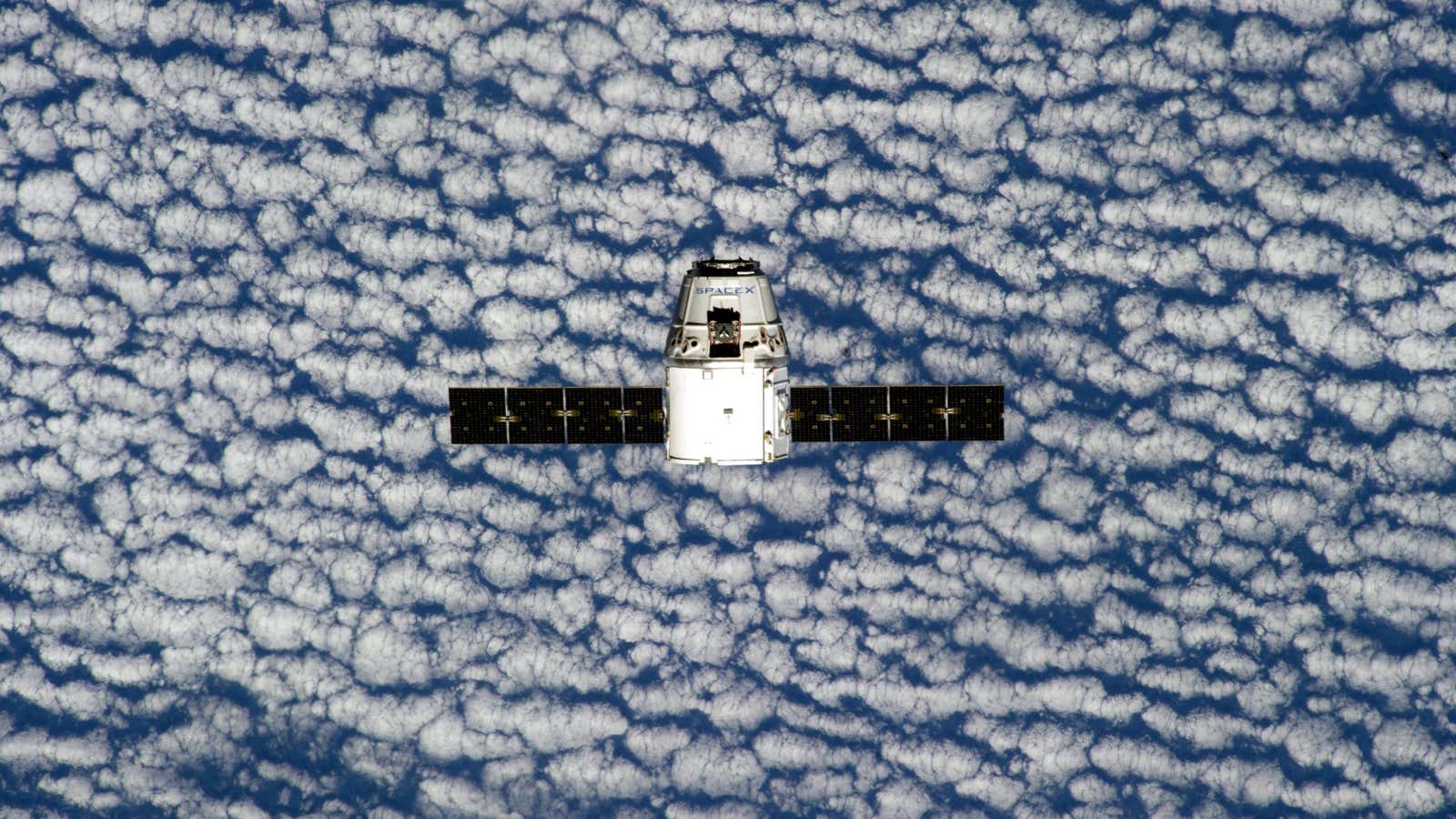Entrepreneur of the future Elon Musk told reporters today about the most pressing aspirations for his company, SpaceX: Making even cheaper rockets, and forcing the Air Force to buy them.
Musk was fresh from some measurable progress toward the first goal of cheaper rockets. Friday’s SpaceX test of a reusable rocket stage during a launch of supplies to the International Space Station exceeded Musks’s expectations, bringing the booster stage of the rocket safely to the ocean (where it was unfortunately torn apart by 20-foot-tall waves).
The data from the test suggests that Musk’s industry-disrupting plan to reuse rockets by flying them back down to earth rather than letting them be destroyed—which he says could save as much as 70% of the cost of a launch—is within reach. “If all goes well, we’ll be able to land a stage back at Cape Canaveral by the end of the year,” said Musk, who is also the CEO of Tesla Motors and founder of SolarCity.
So what about forcing the Air Force to buy his rockets? SpaceX has been trying to get the Air Force to hire it to launch satellites, but the incumbent operators United Launch Alliance (a joint venture of Lockheed Martin and Boeing) have proved difficult to unseat. Despite a testy Congressional hearing in March where Musk and ULA’s chief executive Michael Glass sniped about each other’s companies and rockets, ULA was awarded a multi-billion-dollar no-compete contract to launch 36 satellites.
Musk says that’s a huge loss for American taxpayers: ULA launches each cost more than $400 million, while SpaceX can do the same job for less than $100 million a flight, thanks to the company’s newer technology—even without reusability. That’s why, he says, SpaceX will be filing a protest in the US Court of Federal Claims calling on the Air Force to suspend its contract with ULA and allow other companies to compete for Uncle Sam’s spy satellite business.
Musk also brought up a politically inconvenient problem with ULA’s rockets: Their engines are manufactured in Russia. Musk pointed out that the head of Russia’s space program is deputy prime minister Dmitry Rogozin, a Putin crony who was recently sanctioned by the United States as result of his country’s military seizure of Crimea.
“This seems like the wrong time,” Musk said, “to send hundreds of millions of dollars to the Kremlin.”




